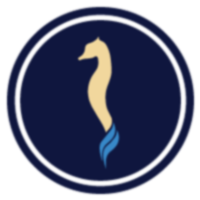
Our Services
Valuations
Valuations
At Masters' Shipping co. one of our strongest fields of expertise is the Assessment (evaluation) of Passenger Ships of all types having been involved in the issuance of thousands relevant certificates in the course of the last 55 years.
Capt. Dennis Vernardakis has spent his entire career, since he joined the company in mid-70’s, with an absolute dedication to this incredibly complex field of our profession.
Our Advantage
Unlike most of our competitors (some of which hardly have ever been involved in a sale or time-charter deal of passenger ships but still have no problem offering something they call 'valuation services'), we at Masters' Shipping, after years of studying and having worked out tens of various approaches both mathematical and practical, have come to the conclusion that the assessment of Passenger ships, in general, is more of an art and to a lesser extent a hard science. However, as a matter of fact we are using a combination of our 'Art Skills', experience and Mathematical applications developed by the company's Research and Development department established and led by George Vernardakis, Masters Degree in Applied Maths from Athens National Technical University, holder of a Valuators' Certificate from Lloyd's Academy of London and member of SIAM (Society for Industrial and Applied Mathematics,
USA).
Our Approach
For us methods based solely on Mathematical Algorithms, Statistics & Probabilities, Machine Learning, etc, alone, are fundamentally flawed for the simple reason that not only is it almost impossible to quantify the -what we call- occult variables involved but also most of the times a number of vital data are simply not available (N.B. large numbers of deals involving passenger ships of all types are either under-reported, with many needed data and information like sale prices and/or time charter rates being deliberately withheld) or not reported at all.
Ships - much more so Passenger Ships of all types - are not just things or commodities. They have a name, a date and place of birth, an ID card number, they “eat”, they get sick and recover, etc. In short, each (passenger) ship lives her own life and she eventually dies when their time comes like all living creatures in nature. Even sister ships may differ so much (e.g. in their interior) each one having a uniquely distinct style and “personality” and subsequently having their own loyal guest-followers.
To evaluate such a complex entity one must have developed special skills to be able to “communicate” with each of them in order to manage to see through them.
That's exactly our achievement.
